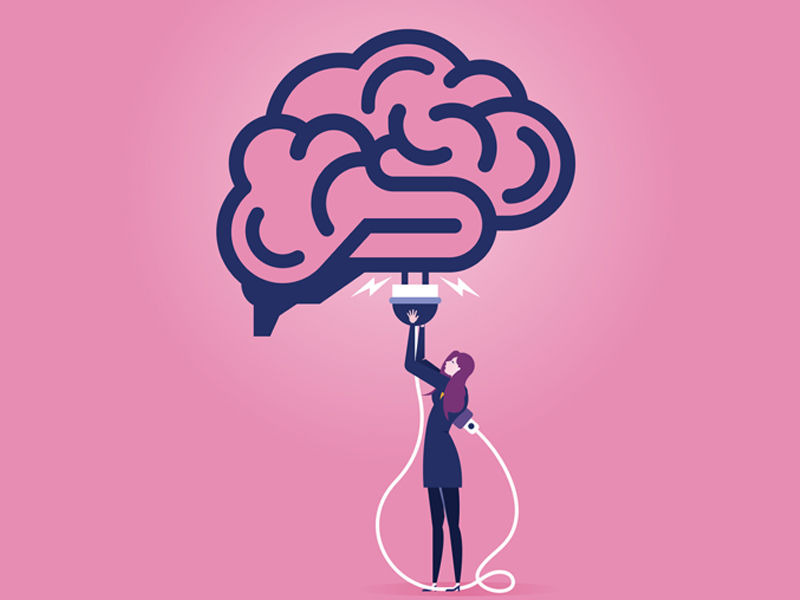Get Easy Health Digest™ in your inbox and don’t miss a thing when you subscribe today. Plus, get the free bonus report, Mother Nature’s Tips, Tricks and Remedies for Cholesterol, Blood Pressure & Blood Sugar as my way of saying welcome to the community!
Rewire your brain to eat less sugar and save your memory

Our bodies run on sugar, better known as glucose. Glucose is what fuels our cells, including our brain cells.
That’s why wanting sugar was a survival mechanism for our prehistoric ancestors.
Trouble is, in the present, it can cause us harm. Like making us unable to remember things.
The hippocampus is the small area of our brain that is in charge of short-term memory, also known as our working memory. For example, if you wanted to recall what you had for breakfast in the morning, you’d be referring to your working memory.
Daily sugar consumption has been shown to reduce the formation of new neurons in the hippocampus, a process known as neurogenesis. It also increases the presence of cytokines, proteins that cause inflammation by over-stimulating your immune system.
Unfortunately, our brain still functions very similarly to our ancestors’ brains, and it really likes sugar.
Yes, there IS such a thing as sugar addiction
You may think your brain is a static organ, and that once it’s damaged or changed, that’s it. But this is not true.
Your brain is continually remodeling and rewiring itself through a process called neuroplasticity.
I am living proof of this. After my recent brain surgery to remove a cyst, I have regained all of the ability I had prior to the event. It just took some work and self-care.
This kind of rewiring also takes place in the brain’s reward system, known as the mesolimbic dopamine system.
As I mentioned, we’re wired to want sweets. But the more of them we eat, the more we want them. That pathway in the brain is activated over and over again, leading to a kind of tolerance for sugar.
This means we need to eat more to get the same rewarding feeling, a classic feature of addiction — in this case, a food addiction.
6 ways to retrain your brain
Sure, we all indulge in homemade pies, cookies, and other sweet treats during the holidays. And that’s okay. Just don’t make a habit of it, if you want to keep your brain sharp and your memory strong.
The prefrontal cortex has inhibitory neurons that let us resist temptation and make decisions around what we eat. In order to resist sugar, we need to activate those neurons. Exercise and eating foods high in omega-3 fatty acids are two ways to do that.
Here are six other ways to activate those inhibitory neurons, and break the cycle of sugar addiction…
- Fresh fruits. Eating fresh fruits offers that sweetness we want, with the added benefit of the fruit’s fiber, antioxidants, and phytochemicals.
- A hot shower. By the time you finish, according to many people, your craving will have subsided.
- A brisk walk outside. This will release feel-good endorphins in your brain that can help eliminate cravings.
- A glass of water. Often, it’s thirst, not the desire for a sugary treat, that is getting to you.
- Take a multivitamin. This can eliminate any deficiencies that may be linked to your sugar cravings. For example, magnesium is used to help regulate glucose, insulin, and dopamine. A magnesium deficiency may show itself as intense sugar cravings, especially for chocolate. A zinc deficiency can also lead to sugar cravings.
- Talk to a friend. Someone who understands what you’re going through can offer the words of encouragement you need to stay away from that sugary treat.
Sources:
- Your brain on sugar: What the science actually says — The Conversation
- Negative Impact of Sugar on the Brain — Verywell Mind
- Short-term exposure to a diet high in fat and sugar, or liquid sugar, selectively impairs hippocampal-dependent memory, with differential impacts on inflammation — Behavioural Brain Research
- A high-fat, refined sugar diet reduces hippocampal brain-derived neurotrophic factor, neuronal plasticity, and learning — Neuroscience
- The Effects of Sugar on the Brain and Memory — Integrative Psychiatry
- A Simple 3-Step Plan to Stop Sugar Cravings — Healthline













